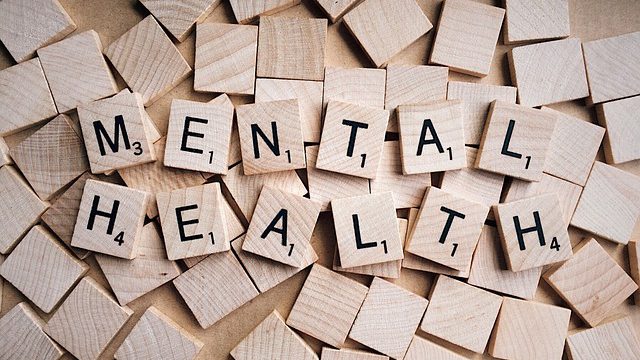It’s important to say that there are different ways of understanding mental illness, and indeed that there is quite a lot of debate about exactly how we should think about and treat it. (One of the most useful discussions on this subject is by the psychologist Jay Watts: ‘Is mental illness real?’). Before exploring this, however, it’s also very important to state that, despite these differences, everyone who has any knowledge of mental health problems at all agrees that these conditions and experiences are often highly disabling, and involve much suffering and distress.
Broadly speaking the differences in opinion centre on whether mental health conditions are more the product of individual ‘dysfunctions’ of various kinds (such as a ‘chemical imbalance’), or are, in full or in part, produced by negative experiences and/or environmental factors (for instance: trauma, racism, or abuse).
Probably most experts now would argue that a combination of factors work together to produce mental illness. These would include learnt behaviours, biology and genetics, a person’s history and experience, and current environmental factors. This way of thinking is often called the ‘biopsychosocial’ model. The clue here is in the name: the biopsychosocial model contends that mental health conditions are caused by a combination of biological, psychological and social factors.
However, the biopsychosocial model is not without its critics. Some people argue that in practice many of those who use this model place much more emphasis on the ‘bio’ aspect, and that little meaningful attention is paid to the role of social and political factors in causing mental health difficulties. Others argue that there is no biological basis to mental illness, and that we should abandon the disease model altogether, and instead conceptualise mental health conditions as expressions of distress in reaction to social injustice, intolerable pressure, or trauma.
Those who disagree with the illness model point to the fact that there are no objective scientific tests which exist to determine a diagnosis of, say, schizophrenia or depression. Rather, diagnoses are made on the basis of a doctor’s interpretations of behaviours and descriptive accounts. The arguments also state that diagnostic categories are not as neat and separate as they might appear to be, and that medicine is claiming more understanding than it actually possesses.
Such points of view often also argue that it is less unsettling for society and less challenging to governments if we think of mental health conditions as the product of a faulty biology rather than as the result of social conditions such as poverty, exploitative and precarious work, domestic violence, child abuse, trauma, and discrimination. This view contends that “citizens who consider themselves ill are easier to manage than people who consider themselves maddened by toxic families and injustice”.
Overall, perhaps what is most important is that different people use different ways to understand their experience. Jay Watts’ conclusion is worth quoting here:
Some will choose to conceptualise their distress as an illness, others as a result of trauma, others yet as an embodied response to the mixed messages that are rife in society about who and how we are supposed to be. Our guiding principle should not be whether such forms of accounting are true or false, but whether they are useful for any given individual at any given moment. Acceptance, after all – is the great friend of good mental health just as writing over one another’s truth is the great enemy.
Below are some links to websites and communities which develop critical views of how we treat and understand mental health difficulties. Do explore these if you’re interested, but please above all always seek help if you are struggling with your mental health.
Recovery in the Bin (RITB).
RITB is an activist group challenging the ‘recovery’ model as it is used in mental health. They maintain a website and Facebook community.
Drop the Disorder is a campaign and a community which challenges the category of ‘personality disorders’ believing these to be stigmatising and harmful labels.
Mad in America seeks to rethink psychiatric care in the United States (and abroad): “We believe that the current drug-based paradigm of care has failed our society, and that scientific research, as well as the lived experience of those who have been diagnosed with a psychiatric disorder, calls for profound change.”
HVN is an international peer-led network which explores non-medical ways of supporting people who hear voices.
The Icarus Project is a US-based support network and education project which advances “social justice by fostering mutual aid practices that reconnect healing and collective liberation.”
NSUN (The National Survivor and User Network) is an English network of people and groups who “experience mental distress and want to change things for the better”. They seek to “influence policy, practice and perception, in order to reduce disadvantage and discrimination and stop people being ignored and isolated.”
Understanding psychosis and schizophrenia.
This report from the British Psychological Society presents a challenge to some approaches to psychosis and argues that it can be understood in the same way as other psychological problems such as anxiety or shyness.
What happened to you? Trauma informed approaches to mental health care.
An article on the Mental Elf website which summarises a journal article on trauma informed care.
See also: Articles by Jay Watts at the Guardian.



